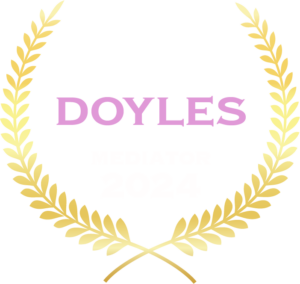Attending mediation or family dispute resolution is compulsory for parents seeking to commence proceedings before the Family Court of Australia or Federal Circuit Court of Australia, for their parenting matter. At this stage mediation is not compulsory for property matters, though it is important to know that firstly the introduction of compulsory property mediation is something that is being considered and secondly if you commence proceedings in a property matter it is more likely than not that the Judge dealing with your matter will require that you first attend mediation and make a genuine effort to resolve your matter.
The Family Law Act says that a Court must not hear a parenting application unless the party has first filed a certificate issued by a registered family dispute resolution practitioner indicating that they have made a genuine attempt to resolve their matter.
Not all matters are suited to mediation or family dispute resolution. The Family Law Act provides for certain circumstances where it would not be appropriate for mediation to occur and authorises a practitioner to issue a certificate indicating that it is not appropriate. A person can also apply to the Court setting out the reasons why the matter is not appropriate for mediation by filing a particular form with their application.
The exemptions for attending mediation are set out in Section 60I(9) of the Family Law Act. The exemptions are as follows:
Applications made where the circumstances are urgent can be assessed by the Court or a family dispute resolution practitioner as exempt from mediation. Usually these applications are made in circumstances where a parent has kept a child in their care and it is not in the child’s best interests for them to remain in that parent’s care. A parent may need to apply to the Court for a recovery order and in those circumstances the Court would consider the mater urgent. There may also be urgency relating to a parent attempting to leave Australia or the state where they normally live with the child without agreement of the other party.
If a person is filing a contravention application alleging that one party has failed to comply with Court Orders then in certain circumstances a certificate is not necessary. The Court Order which is alleged to have been breached, must be less than 12 months old. If the Court Order is more than 12 months old, the Applicant will need to go through the mediation process.
If there are significant issues of family violence a person may be able to apply for an exemption though it is important to note that many protections can now be put in place to ensure that a person who has experienced significant family violence is protected during the mediation process. Mediations can be run as a shuttle or from separate locations and electronically so that there is no risk of the parties coming into contact with each other. The greater risk of significant or serious family violence is the ability of the parties to effectively participate in mediation and whether a party who has been a victim of significant prolonged family violence is able to effectively communicate with a perpetrator of that violence. In those circumstances an assessed can be made by a family dispute resolution practitioner as to whether it is appropriate for mediation to occur.
If it would be practically difficult for a party to participate in family dispute resolution then it is possible for an exemption to apply, though again note these days mediation can occur electronically regardless of where people are located. This exemption more appropriately applies to parties who would have a specific practical difficulty because of cognitive or capacity issues.
Finally, if there have been significant allegations of child abuse or child neglect then it is likely that a family dispute resolution practitioner would assess that it is not appropriate for mediation to occur, particularly if the issue relates to whether or not a parent is going to be able to spend time with a child in the future if such abuse has occurred.
It is important to get legal advice from your lawyer about mediation and whether it is appropriate for mediation to occur. If any of these exemptions apply then you can ask a dispute resolution practitioner to assess your matter and if appropriate, issue a certificate, so that you can commence proceedings.


